We established ourselves in the Momojein Guesthouse, 5 minutes from the train station, local bus stops, and within walking distance of many UNESCO World Heritage sites. With included self-serve breakfast, shared kitchen, a big black dog named Momo, and decidedly laid back atmosphere it was a the perfect place for us. Not to mention that Top Mart and Home Plus supermarkets are nearby and a Daiso is just around the corner.
Arriving before noon by train from Busan meant we had long afternoon to explore and after a provisioning trip to Top Mart we set off walking towards the National Museum. The wind was howling and we wished we had worn our wool hats.
Our first experience with KORAIL worked out well as we bought tix online, picked them up at Bujeon Station, and then took the 9:45 train to Gyeongju Station.

View from the train. It seems that every road in South Korea is lined with cherry trees.

We walked past this fire station at least once a day while in Gyeongju - it's near the Top Mart supermarket.

This pavilion houses a replica of the famous Bell of King Seongdeok now in the site museum.
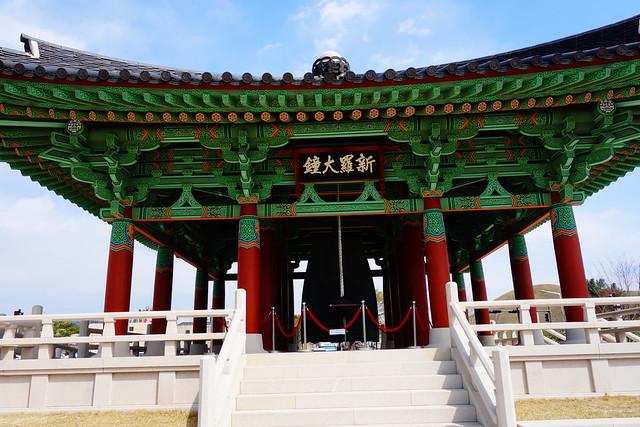
Beautiful bell.

The cherry trees are in full bloom and our fellow



Visitors love to dress up in Korean costume and roam around taking photos of themselves.

The Cheomseongdae astronomical observatory dates from 7th century. It's constructed from 365 stones, representing the number of days in a year.

We ended up at the free Gyeongju National Museum where the actual Bell of King Seongdeok, the largest bell in Korea, is kept. It was cast in 771 A.D.

The main museum building.
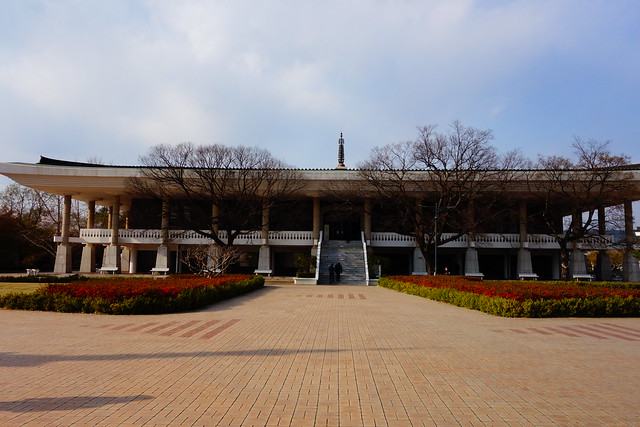
One of the highlights of the museum is the display of items, including a gold crown and a gold belt, found in the North Mound of Hwangnamdaechong Tomb. A few days later we visited the tomb site; amazing. Stay tuned.

the museum has a building dedicated to he Palace and Wolji Pond. A few days later we visited the palace and pond at night. Stay tuned.

The reconstructed Woljeonggyo Bridge.

Pano by Sun-Ling.
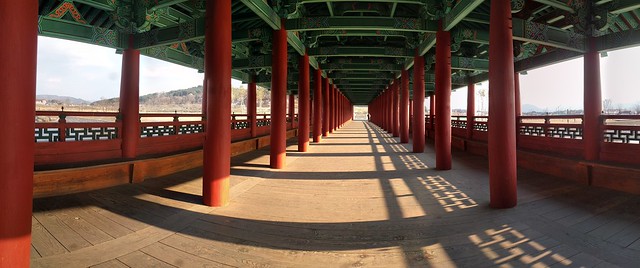
Walking home through the burial mounds.

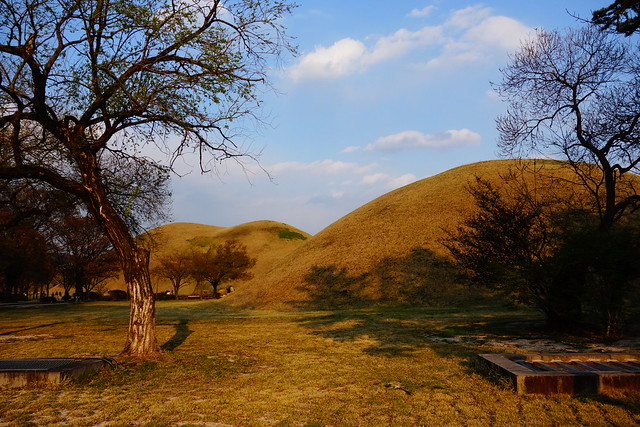
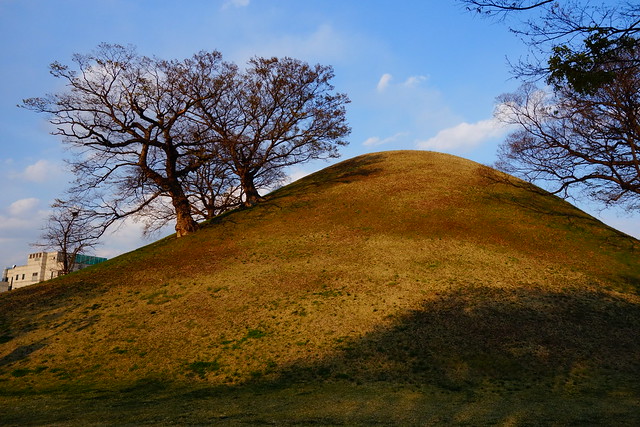
Wow, you certainly timed it well for the cherry blossom! (Although the mounds were green when I was there.) Never thought of Gyeongju as coastal.
ReplyDelete@kathy, Well you can see the East Sea from Seokguram Grotto, LOL, but I agree there is no sense that it's a coastal city. Yesterday I reread your blog posts from Korea; will be fun chatting when we see you next.
ReplyDeleteLooking forward to seeing you! I went back to South Korea in 2016 but didn't get around to writing about it. Will have to look up my notes.
ReplyDelete